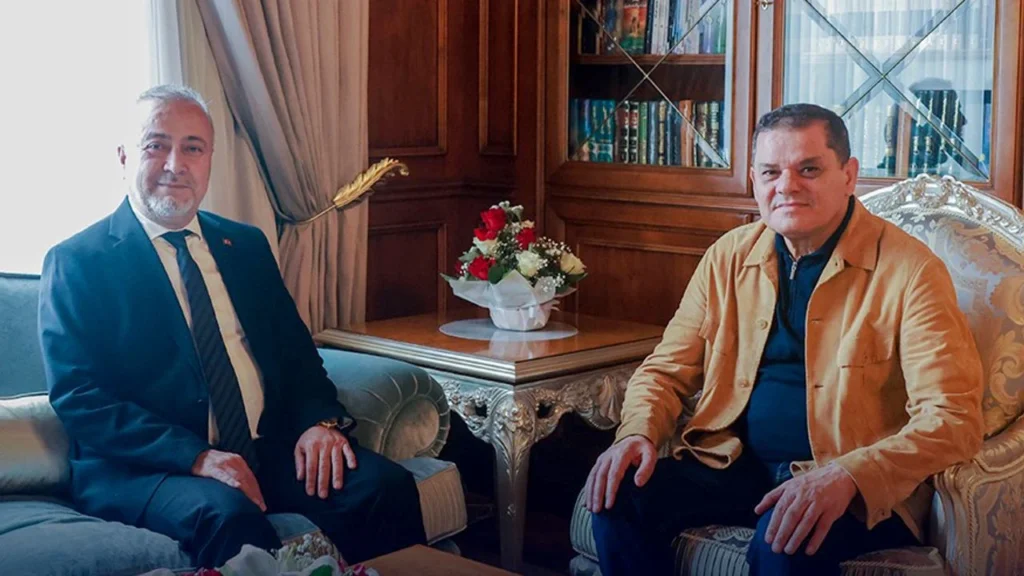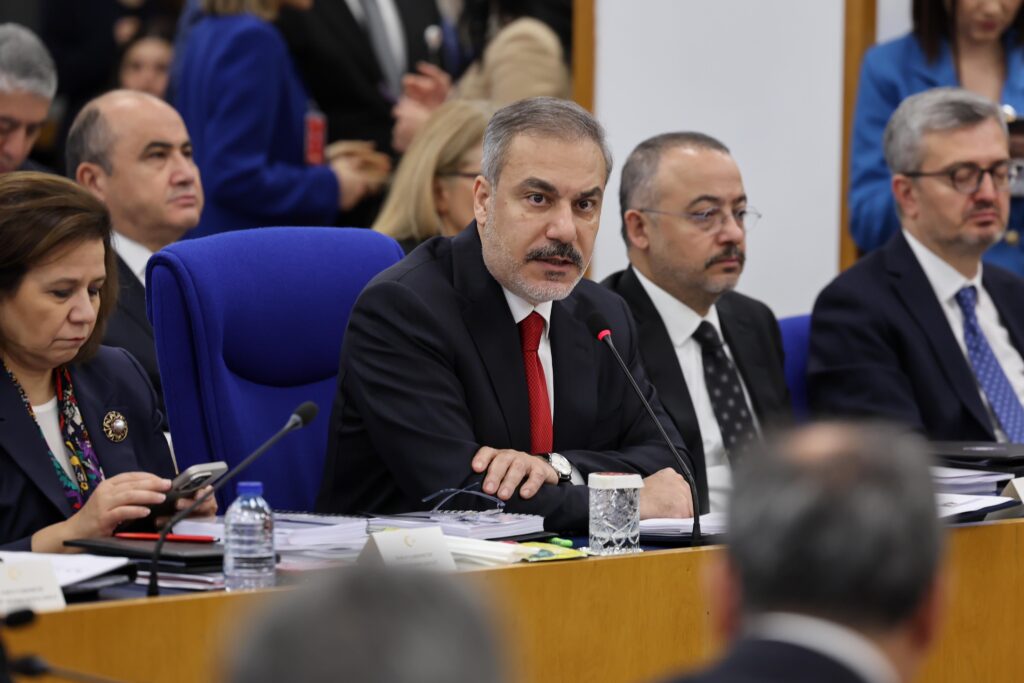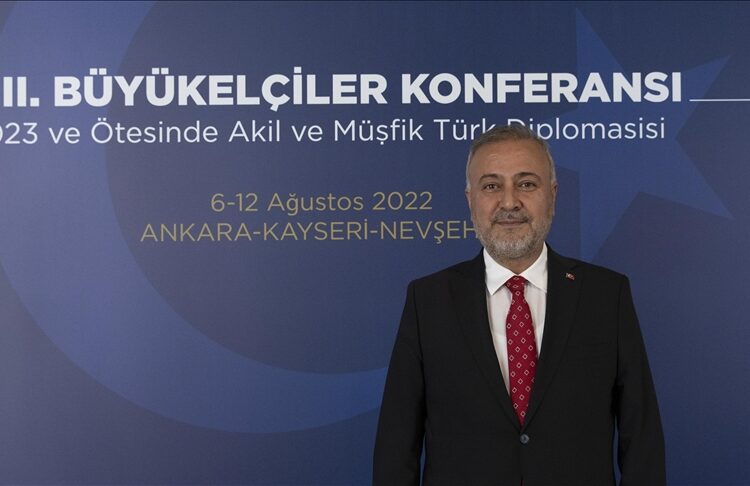Levent Kenez/Stockholm
With the official approval of Turkey’s President Recep Tayyip Erdogan, a Turkish intelligence officer has been formally appointed to head a critical department at the Ministry of Foreign Affairs. The appointment, which is part of a policy led by Foreign Minister Hakan Fidan, a former intelligence chief, signals an intensification of overseas intelligence operations and the intimidation of Erdogan’s critics.
Kenan Yılmaz was officially appointed director general of intelligence and security at the Ministry of Foreign Affairs on January 11, following the publication of his appointment in the Official Gazette. Yılmaz, who had been unofficially serving in this role since October 2024, previously held the post of ambassador to Libya from 2021 to 2024.
Little was known about his background at the time of his appointment as ambassador, prompting speculation from opposition lawmakers and media outlets that he was affiliated with the National Intelligence Organization (MİT).
On November 21, 2024, during budget discussions in parliament, Foreign Minister Fidan publicly confirmed for the first time that Yılmaz was indeed an MİT officer.
Turkey has maintained an active presence in Libya, supporting allied factions through arms shipments, military training and financial assistance, much of which has been underpinned by Qatari funding. Additionally, Turkey deployed Syrian mercenaries to Libya, offering them monthly salaries and, reportedly promises of Turkish citizenship for themselves and their families. These fighters, selected and organized by MİT, played a key role in Turkey’s regional strategy, which dates back to its involvement with groups against former Syrian President Bashar al-Assad, who was ousted on December 8, 2024.

In his speech in parliament on November 21, Fidan also confirmed that the following positions within the foreign ministry are now held by former MİT officials: director general of personnel, director general of legal services, director general of information technology, director general of intelligence and security, director general of foreign policy planning and coordination and director general of international security.
Fatma Ceren Yazgan, who was replaced by Yılmaz, has been appointed director general of migration policies and visa procedures. Given that Yazgan was appointed on August 10, 2023, it can be assumed that Fidan was dissatisfied with her performance, leading to her reassignment to a passive role.
Yazgan is one of the troll diplomats who frequently engage in polemics and discussions on social media. She is also a vocal defender of the prosecution of Erdogan dissidents. Former diplomats who previously spoke to Nordic Monitor said Yazgan is notorious for her crude language.
Known for her secular lifestyle, Yazgan’s overt hostility towards the Islamist Erdogan’s opponents seems to have been insufficient in securing prestigious positions within the ministry.

Fidan’s greatest expectation from Yılmaz is undoubtedly intensifying the ongoing battle against government opponents abroad. A key part of this effort will involve working with foreign governments to facilitate the processing of extradition requests issued by Turkish courts, which are under government control. Many EU countries refuse to act on Turkey’s extradition requests, but in an exception, the Swedish government has initiated legal processes for the extradition of political refugees from Turkey. However, Swedish courts have rejected these requests, arguing that the charges presented by Turkey do not constitute illegal acts under Swedish or international law.
One of the reasons Yılmaz was selected for his new role is his potential to contribute more effectively to coordinating operations targeting individuals abducted abroad by MİT and brought back to Turkey, many of whom are members of the Gülen movement, a group critical of the Erdogan government. Given his MİT background, Yılmaz is expected to take a more prominent role in these operations.
Yılmaz’s appointment was published in the Official Gazette on January 11:
Turkish diplomats have long been known to engage in spying activities to create profiling lists related to the Gülen movement and Kurdish opposition groups. It is expected that with the appointment of Yılmaz, these activities coordinated by the Directorate General of Intelligence and Security at the ministry will be expanded and updated. Individuals profiled by diplomats are later the subjects of terrorism investigations initiated by the courts.
During his time as ambassador to Libya, Yılmaz was involved in coordinating the transport of jihadist militants to the country. With this in mind, his presence at the foreign ministry could help streamline Ankara’s dealings with jihadist groups and their members, especially under the new administration in Syria, where Turkey continues to support certain factions.
Nordic Monitor previously reported that appointments at the Turkish Ministry of Foreign Affairs raised concerns due to the selection of individuals with strong ties to Turkey’s intelligence agency right after Fidan took office.

Fidan, often seen as a potential successor to President Erdogan and a future leader of the ruling party, frequently makes statements designed to resonate with conservative and nationalist audiences. During his tenure as the head of MİT, Fidan built a mysterious and hardline image, bolstered by MİT-supported troll accounts on social media. As foreign minister, he appears intent on preserving this carefully crafted persona.
Under Erdoğan’s increasingly authoritarian rule, MİT has become a cornerstone of Turkey’s power structure. Erdogan appointed Fidan as foreign minister, a role of high prestige but one that somewhat curtails his influence in comparison to that of the head of national intelligence. In a strategic move, Erdogan replaced Fidan at MİT with İbrahim Kalın, a close relative and trusted confidant.
The transfer of some of Fidan’s key allies in MİT to the Ministry of Foreign Affairs is seen as a proactive measure, as these figures were likely to be sidelined under Kalın’s leadership. Rather than remaining at MİT and risking marginalization as “Fidan loyalists,” they opted to join Fidan in his new role, ensuring their continued relevance and influence.












